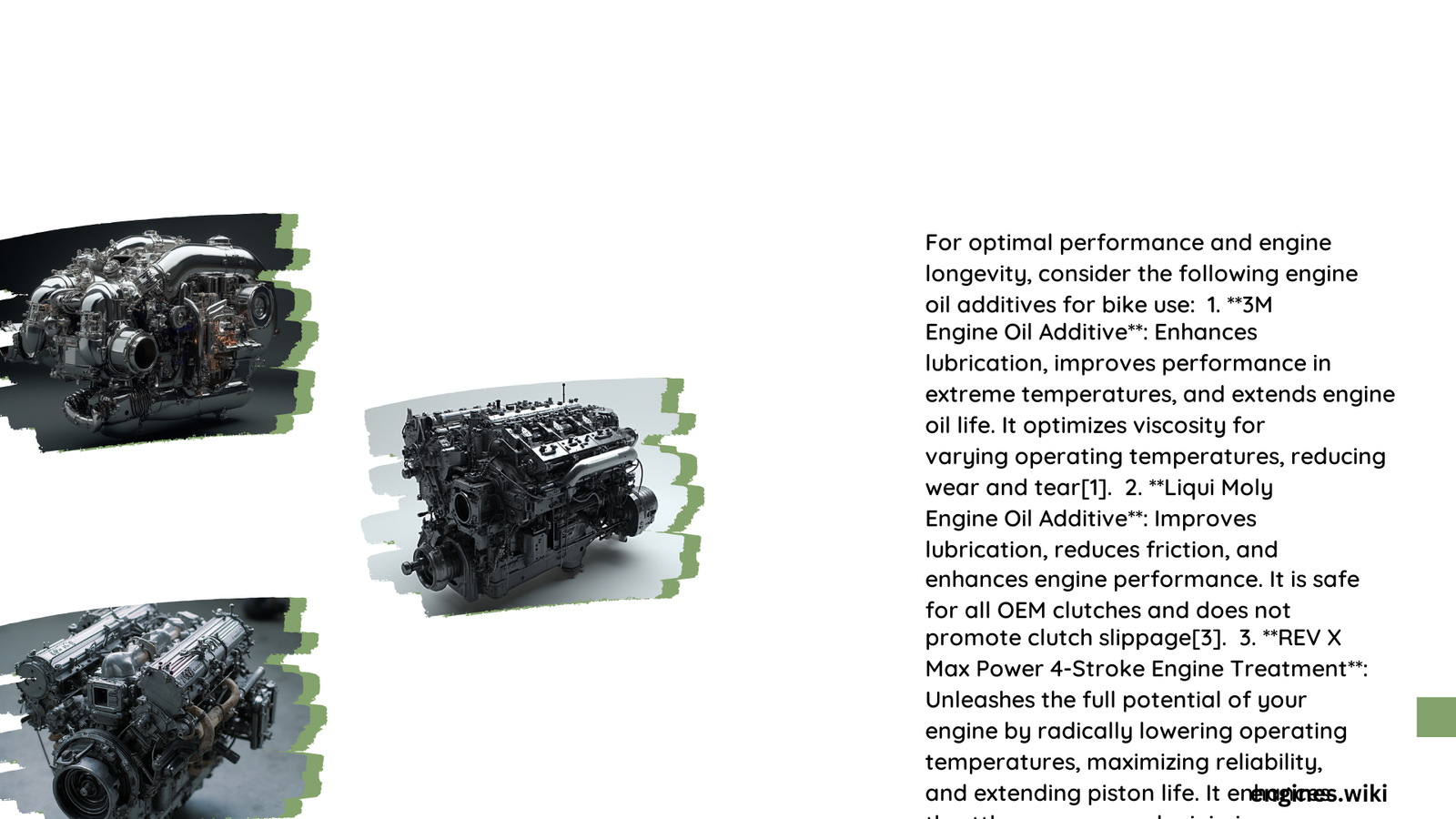Engine Oil Additive for Bike Use: Performance Insights and Expert Analysis
Motorcycle enthusiasts often seek performance enhancements through engine oil additives, but scientific evidence suggests a complex landscape of potential risks and limited benefits. Understanding the nuanced interactions between oil formulations, engine components, and additive technologies is crucial for making informed maintenance decisions that protect your bike’s long-term performance and reliability.
What Are Engine Oil Additives?
Engine oil additives are chemical compounds designed to enhance the base oil’s performance characteristics. For motorcycles, these additives aim to:
- Reduce friction
- Improve wear protection
- Enhance thermal stability
- Minimize engine deposits
| Additive Type | Primary Function | Potential Risk |
|---|---|---|
| Friction Modifiers | Reduce mechanical resistance | May alter oil viscosity |
| Anti-Wear Agents | Protect metal surfaces | Potential chemical incompatibility |
| Detergents | Clean internal engine components | Possible residue accumulation |
Why Do Riders Consider Oil Additives?
Motorcycle owners explore oil additives for several compelling reasons:
- Performance Enhancement: Perceived improvements in engine efficiency
- Wear Reduction: Potential extended engine component lifespan
- Maintenance Cost Mitigation: Hopes of reducing long-term repair expenses
Can Additives Truly Improve Motorcycle Engine Performance?
Empirical research indicates significant limitations in additive effectiveness:
- Viscosity Challenges: Additives can disrupt manufacturer-recommended oil viscosity
- Compatibility Issues: Potential chemical interactions with existing lubricant formulations
- Limited Scientific Validation: Lack of comprehensive, peer-reviewed performance studies
What Do Experts Recommend?
Professional mechanics and motorcycle manufacturers consistently advise:
- Use manufacturer-recommended synthetic oils
- Avoid third-party additives
- Maintain regular oil change intervals
- Focus on quality base lubricants
Potential Risks of Inappropriate Additive Usage
Unverified oil additives might introduce several complications:
- Accelerated engine wear
- Reduced lubrication efficiency
- Potential voiding of manufacturer warranties
- Increased maintenance costs
How to Protect Your Motorcycle’s Engine?
Best practices for optimal engine health include:
- Select high-quality synthetic motorcycle-specific oils
- Follow manufacturer maintenance schedules
- Use reputable, OEM-approved lubricant brands
- Conduct regular oil analysis
Technical Considerations for Oil Additives
Critical factors to evaluate before using any engine oil additive:
- Chemical composition
- Compatibility with existing lubricants
- Manufacturer recommendations
- Independent laboratory testing results
Conclusion
While the allure of performance enhancement through oil additives remains tempting, scientific evidence suggests caution. Motorcycle owners should prioritize high-quality base oils, rigorous maintenance, and manufacturer guidelines over unproven additive technologies.

